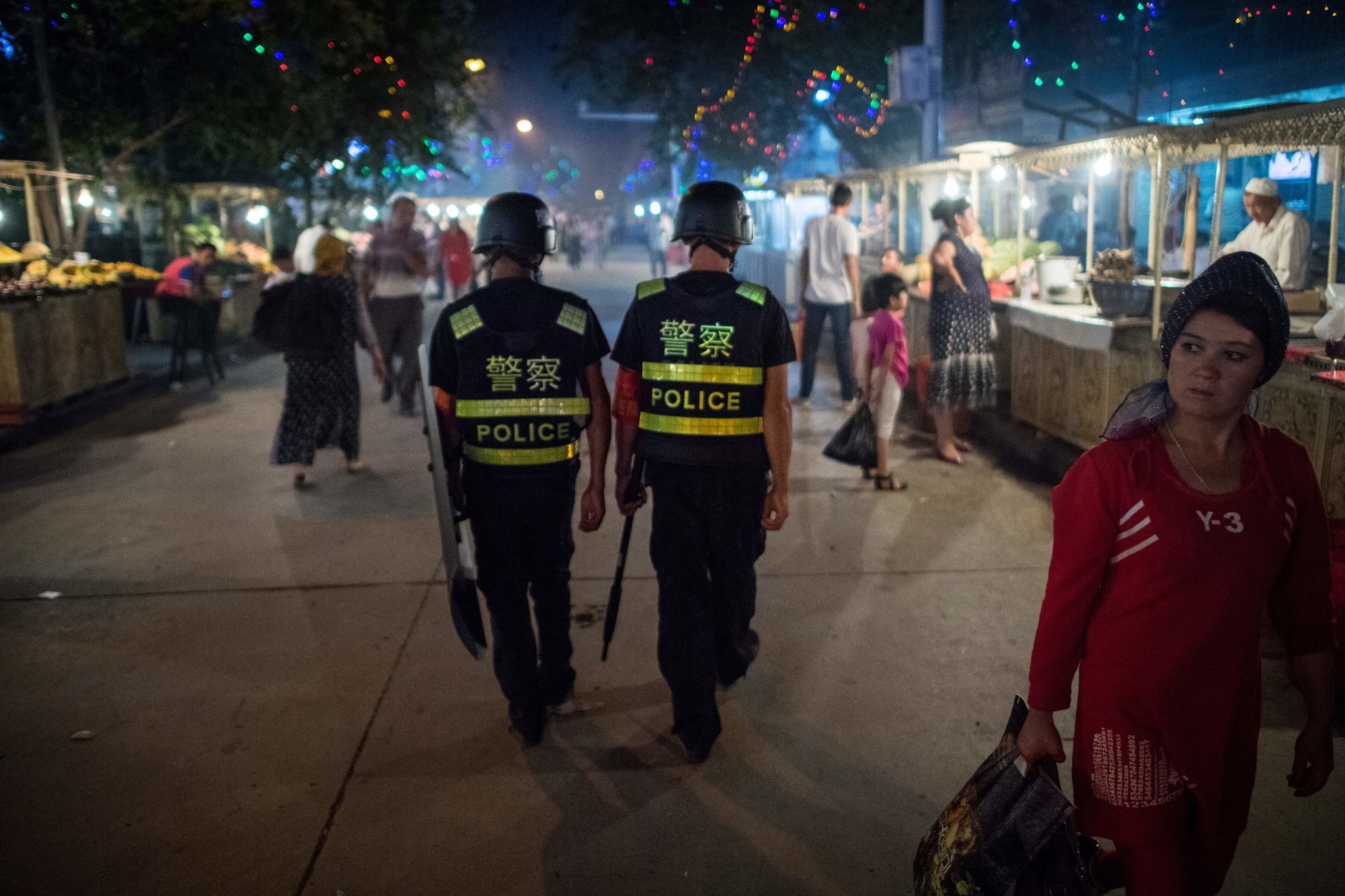By Bret Stephens
Opinion Columnist
A regime at war with the human soul will eventually lose.

Every now and then, when credulous Western observers aren’t fawning over China’s high-speed rail network or calculating the precise moment when its economy will become the world’s largest, a news story breaks through to remind us that the People’s Republic remains what it has always been: a place of fear and cruelty. One such story, by the Times’s Chris Buckley, is worth particular attention.
Writing from Hotan, a city in the western province of Xinjiang, Buckley describes a system of internment camps, brainwashing programs, and pervasive surveillance, all aimed at the region’s Muslim majority, mostly ethnic Uighurs. The overall approach, he writes, is “reminiscent of Mao’s draconian rule — mass rallies, public confessions and ‘work teams’ assigned to ferret out dissent.”
As with so much in China, the scale is vast. Hundreds of thousands of Chinese Muslims have been hauled into re-education camps for weeks or months at a time, often indiscriminately, with no clear idea of when, or if, they’ll get out. The city itself “feels as if under a siege by an invisible enemy,” with ubiquitous surveillance cameras, metal detectors, checkpoints, police outposts, biometric data collection, and local residents assigned to spy on their neighbors.
As with so much else in China, too, the government lies about what it’s doing. It flat-out denies the use of arbitrary detention, the targeting of an ethnic minority, or the existence of the re-education camps, which it described as job-training centers. That these denials are contradicted by the government’s own documents, some of them publicly available, is a useful reminder that repressive regimes are frequently incompetent, too.
A somewhat more accurate explanation for Beijing’s behavior is that it fears ethnic separatism and Islamic radicalism. Those fears aren’t entirely misplaced: China has been the victim of terrorism, most notoriously when knife-wielding Uighur assailants killed 31 people and injured another 141 at a train station in Kunming in 2014. And Uighur separatism has been a thorn in China’s side for decades.
But China’s policy isn’t really meant to curb Islamic radicalism or ethnic separatism. As Buckley notes in his article, the brute repressiveness of China’s methods does much more to fuel than ease Uighur resentments. Chinese Muslims can also be detained by the authorities for praying, fasting, eating breakfast before sunrise, going to a mosque, not smoking, performing a traditional funeral, or telling others not to swear or sin.
None of this is evidence of extremism. It’s evidence of ordinary decency and modest religiosity.
Yet it is for the same reason that Beijing has spent decades persecuting other religions or spiritual practices not typically associated with modern terrorism or separatism, like Protestantism and Falun Gong. The same was long true of the Catholic Church, at least until the Vatican capitulated to Beijing this week by tentatively agreeing to allow the Communist Party to nominate its bishops.
Put another way, what stokes Beijing’s fears and stirs its fury, whether in the streets of Hotan or the house churches of Shanghai, isn’t political opposition in the ordinary sense. It’s the concept of conscience. It is the thought that good and bad, virtue and vice, fall beyond the scope of the regime’s rightful authority and are not things it gets to define for itself and its subjects. To render unto Caesar cannot mean rendering everything unto Caesar. There are things that cannot be surrendered — your soul, above all — no matter what the regime’s power is to squash or suppress them.
That’s not to say that the regime can’t try, which is what it’s doing in Xinjiang, not to mention Tibet and everywhere else it exercises control. The worst cruelties are those imposed in pursuit of elusive targets.
It is to say, however, that eventually the regime will fail. In the list of what ails China — slowing growth; corrupt officialdom; a declining birth rate; a trade war with the U.S.; Xi Jinping’s cult of personality; the inherent disconnect between a politics of repression and the spirit of innovation — the regime’s war on the soul doesn’t usually rank high. But it matters most. It means the regime has made an enemy of the one thing it cannot kill, capture, eradicate or cure. At some point it will either have to abandon the struggle or destroy itself in the effort, much as the Soviet Union did.
I’ve written this column while making my way through The Atlantic’s superb October issue, with essays from Anne Applebaum, Yuval Noah Harari, David Frum, Amy Chua and others on the question, “Is Democracy Dying?” It makes for bracing reading, much of it convincing. We should all be worried about the health of democracy. We should all work to repair the tattered fabric of liberal culture.
Then again, is there a Chinese equivalent to The Atlantic, offering equally bracing analyses of the shortcomings of authoritarianism? That the answer to that question is so obvious — and its implications so far-reaching — should give champions of open societies confidence for the future.
Follow The New York Times Opinion section on Facebook and Twitter (@NYTopinion), and sign up for the Opinion Today newsletter.




 Print
Print Email
Email